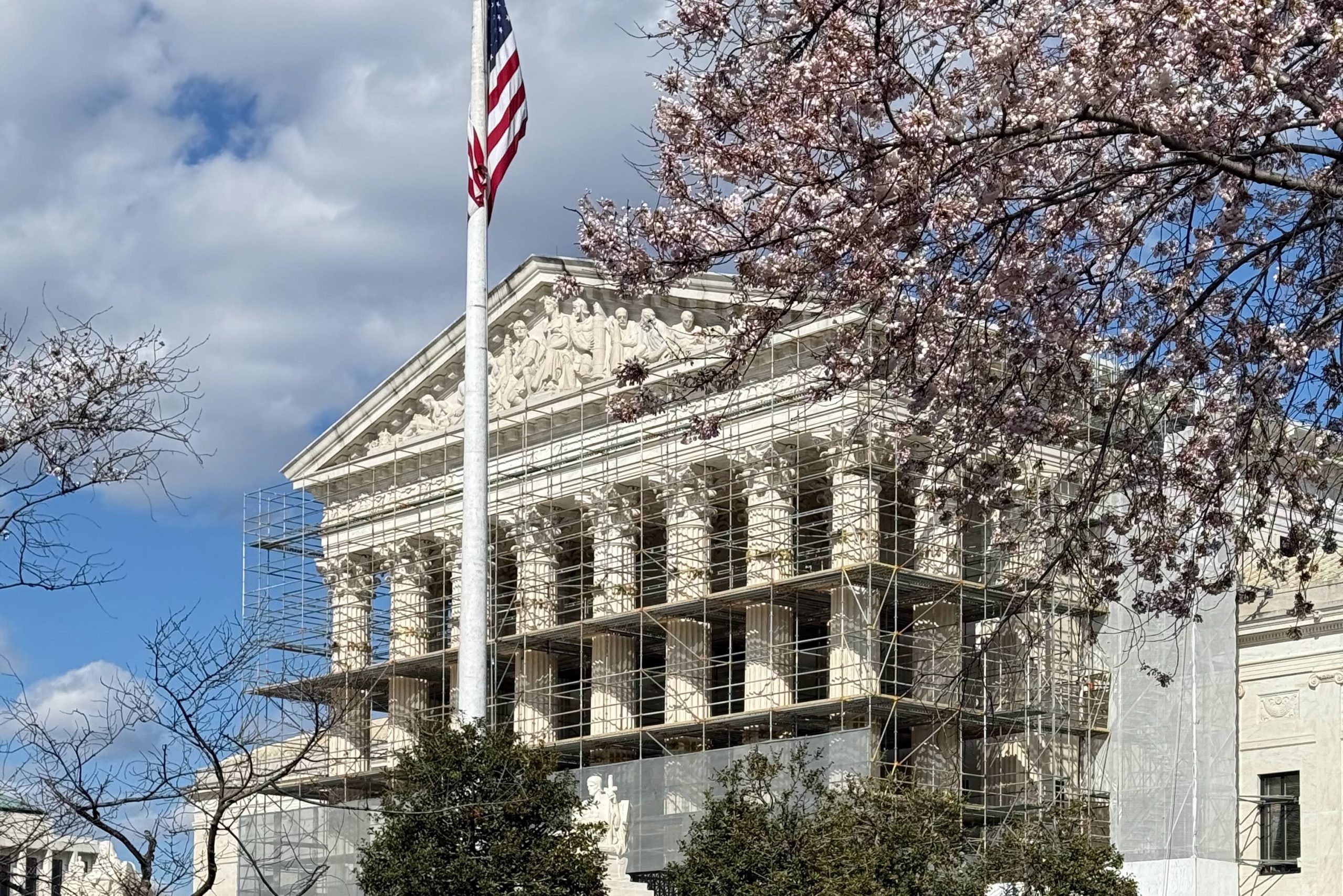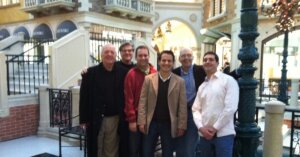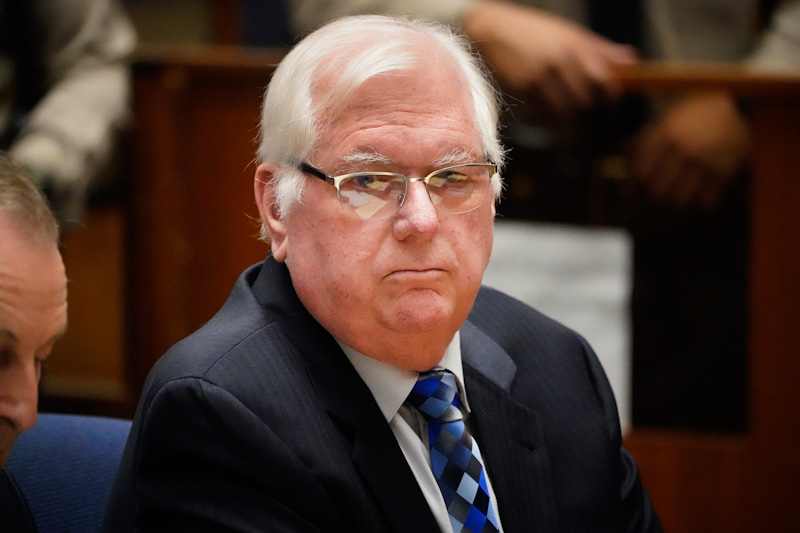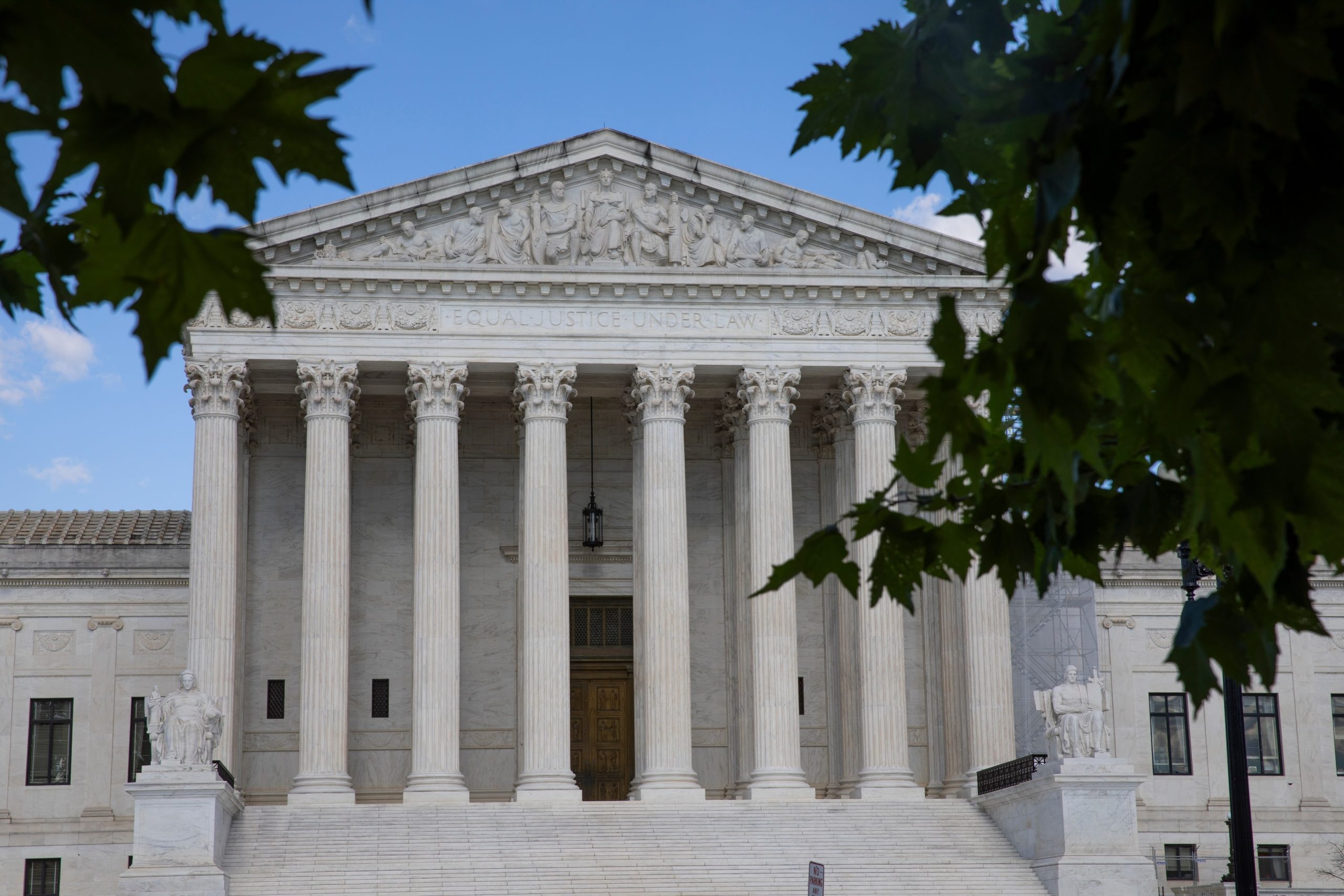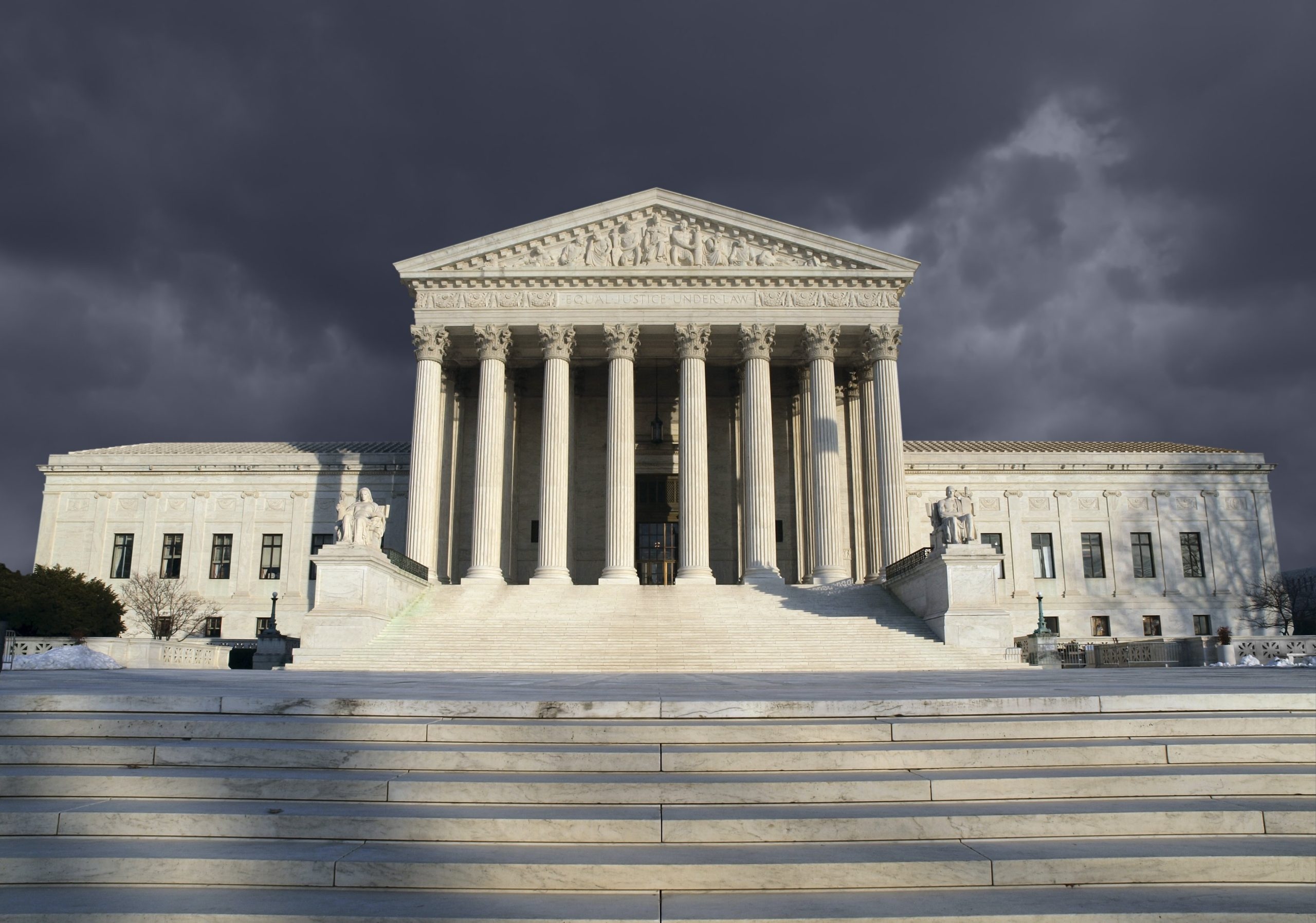Supreme Court to consider Catholic charity group’s request for tax exemption
CASE PREVIEW
With the majority of the 2024-25 term now behind them, the final stretch of oral argument for the justices is packed with all three religious right cases of the year. All three cases call on the justices to adopt a broad view of the Constitution’s religious protections. The first case, which was heard on Monday, may have a significant impact on the organizations that are eligible for religious tax exemptions. On April 22 and 30 the court will decide whether parents can choose to exempt their children from reading LGBTQ-themed stories on religious grounds. It will also determine whether a Catholic online schools can become the first religious charter school in the country One Catholic Charities chapter claims that Wisconsin violated the Constitution when it denied its application for an exemption from a state unemployment tax that the state gives to churches, religious schools, and some religious groups. One Catholic Charities chapter contends that Wisconsin violated the Constitution when it rejected the group’s application for an exemption from a state unemployment tax that the state gives to churches, religious schools, and some religious groups.
The Catholic Charities chapter argues that the real question in the case is “whether Wisconsin can pick and choose which religious groups to tax based on the state’s own cramped, idiosyncratic understanding of what constitutes ‘religious’ behavior.” But Wisconsin counters that unless its rejection of the exemption stands, legislatures may have to choose between providing such accommodations to everyone or eliminating them altogether.
The chapter at the center of this case is the Catholic Charities for the diocese of Superior, in the northwestern part of the state. Its mission is to “carry on the redeeming work of our Lord by reflecting gospel values and the moral teaching of the church.” Four separate groups operating under the Catholic Charities umbrella in the diocese are also involved in the case; each primarily provides social services to people with disabilities.
In 2016, Catholic Charities sought an exemption from having to pay a Wisconsin unemployment tax for its employees, arguing that they fall within a provision of the statute that carves out from the definition of “employment” anyone who works for (as relevant here) “an organization operated primarily for religious purposes.” Catholic Charities contended that the exemption applies because it carries out its charitable works to put Catholic principles into operation.
A state labor commission rejected Catholic Charities’ bid for an exemption. It argued that the group’s charitable activities are secular even if their motivations are religious. The Wisconsin Supreme Court concluded the group’s activities were not primarily religious. Although its motivations are primarily religious, the state supreme court acknowledged, its activities are not: It does not “attempt to imbue” people who participate in its programs “with the Catholic faith nor supply any religious materials to program participants or employees.” Indeed, it added, the group both employs and offers its services to people of all faiths.
Catholic Charities came to the Supreme Court, which agreed on December 13 to decide whether, by denying the group the tax exemption because it did not meet the state’s criteria for religious behavior, Wisconsin violates the First Amendment’s religion clauses, which bar the government from establishing a religion and from interfering with the free exercise of religion.
In its brief in the Supreme Court, Catholic Charities tells the justices that “Wisconsin’s effort to pick and choose among religious groups — and carve out works of mercy from the realm of the ‘religious’ altogether — thus violates the Constitution three times over.”
First, the group argues, the denial of the exemption violates the doctrine of church autonomy – the idea that the government should not interfere in internal church affairs, and in particular in how a religious organization governs itself. The Wisconsin Supreme Court’s decision, says the group, violates this principle because it penalizes Catholic Charities for its organizational structure. Catholic Charities argues that the state’s refusal to grant the exemption is a punishment for the Catholic teachings on church governance. This includes the concept of subsidiarity – the idea that work should be performed more efficiently By denying the exemption to Catholic Charities, the group writes, the state also violates Constitution’s bar on entanglement of church and state. This is wrong. Wisconsin courts should not be in the business of deciding religious questions.” What’s worse, the group suggests, Wisconsin has attempted to hold the Catholic Church to standards – such as proselytizing and limiting its services to members of its own faith – “that directly contradict the Catholic Church’s actual religious beliefs.” Catholic Charities posits that courts should use a different approach that focuses on “the sincerity and religiosity of a claimant’s beliefs rather than trying to decide whether particular activities are ‘inherently religious.'”
The denial of the religious exemption also amounts to discrimination among religions by the state, Catholic Charities tells the justices. The Wisconsin Supreme Court denied Catholic Charities’ exemption request because the group adheres strictly to the Catholic Church teachings when providing services, which Wisconsin deemed to be “typical” religious activities. Moreover, they added, Wisconsin’s The Trump administration filed an “friend of court” brief in support of Catholic Charities. It noted that the Wisconsin law is “mirrored and implemented” by a federal unemployment law. The brief tells the justices they can reverse the Wisconsin Supreme Court ruling based on the text of law. This “makes it clear that the inquiry is focused on whether the organization operates primarily for religion, not the nature of The Jewish Coalition for Religious Liberty states that the State’s approach would require courts to make their own judgments about what activities qualify. Yet courts make basic errors concerning Judaism, misunderstanding or lacking awareness of even foundational aspects of the faith like Sabbath observance.”
The International Society for Krishna Consciousness echoes this concern, telling the justices that in cases involving Hare Krishnas, determining whether particular conduct is sincerely motivated by religion would require courts to review Hindu religious texts. Wisconsin explains that it only conducts a “one-time examination” of the group’s activities to determine whether a group like Catholic Charities is entitled to an exemption. This will allow the state to avoid employment disputes that But to determine whether a group like Catholic Charities is entitled to an exemption, the state explains, Wisconsin merely engages in a “one-time examination” of the group’s activities so that the exemption serves “its disentangling purpose: keeping the state out of employment disputes that turn on distinctively religious conduct.”
Religiously affiliated organizations only qualify for the exemption if they are “operated primarily for a religious purpose,” the state explains, “which covers those that primarily perform distinctively religious functions such as religious education or worship.” The mere fact that a group’s activities are motivated by religion is not enough to create the prospect that the state will become entangled in employment disputes, Wisconsin reasons, and so it “permissibly requires more” – looking in particular at whether a group’s main activities are “distinctively religious.” This does not, the state insists, require courts to look at “what is and is not religious” or what is “typical” of a religion. Catholic Charities misconstrues the Wisconsin Supreme Court’s decision.
Wisconsin emphasizes that the state supreme court did not deny the exemption because Catholic Charities does not engage in proselytization. Indeed, the state stresses, the court indicated that if the group did, it would weigh in favor of its religious status.
Catholic Charities was “ultimately denied the exemption because” it “identified no distinctively religious activities whatsoever, not just a lack of proselytization,” the state tells the justices. And Catholic Charities’ sincere religious beliefs are “beside the point,” because the exemption “does not seek to alleviate burdens on specific religious beliefs or practices,” but instead is intended to “preserve the religious autonomy of organizations likely to present entangling unemployment questions.”
Wisconsin next pushes back against any suggestion that it unconstitutionally discriminates based on religion when it denies Catholic Charities the exemption. The state argues that subjecting Catholic Charities to the unemployment system “does not burden their exercise in religious faith, or target them as a religion disfavored, or amounting to preferential treatment of secular groups over Instead, the state contends, the purpose of the unemployment exemption – “avoiding interference with employment decisions that may turn on faith and doctrine” – is purely secular, and “does not raise concerns about favoring particular religions.”
Finally, the state tells the justices that denying Catholic Charities the unemployment exemption does not violate the principle of church autonomy, because the purpose of the doctrine is to protect religious institutions from government compulsion. The state argues that the dispute in this case only imposes “minor incentives” to the way the group is organized. Because it is a nonprofit, the state notes, it does not pay a tax but must instead “reimburse the State for benefits (if any) provided to their laid-off employees.” Catholic Charities does not indicate that “this threatens their autonomy.” And the denial of the exemption does not require Catholic Charities to restructure its operations: It has not had the exemption “for decades yet remained separately incorporated,” the state observes.
Wisconsin urges the Supreme Court not to weigh in on whether the Wisconsin Supreme Court correctly interpreted the state’s unemployment law, because Catholic Charities did not ask it to do so, the justices did not agree to take up that question, and the Supreme Court cannot review state court’s interpretation of state laws. But in any event, the state maintains, that court’s interpretation was proper.
A “friend of the court” brief by the group Freedom from Religion warned that a ruling for Catholic Charities could have widespread implications, allowing other organizations affiliated with religious institutions to invoke the exemptions as well as long as they “can draw a connection between its operation and the religious mission of its parent entity.” “Such connections,” Freedom from Religion contends, “would be trivially easy to make for religiously-affiliated hospital systems” and could lead to the invalidation of “numerous other government regulatory programs that currently protect over 787,000 healthcare workers at Catholic-affiliated hospital systems throughout the nation.”
More broadly, the International Municipal Lawyers Association, which represents local government lawyers, cautions in its own supporting brief, Catholic Charities’ “approach, if embraced by this Court, would effectively require state and local governments to allow a tax exemption to every organization that claims it is religiously motivated — regardless of the activities it performs — or be found in violation of the First Amendment.”[b]Faced with possible large-scale revenue losses “if forced to allow religious exemptions for all manner of organizations,” IMLA concludes, state and local governments may instead opt to “eliminate religious exemptions in a variety of contexts.”
This article was originally published at Howe on the Court.

